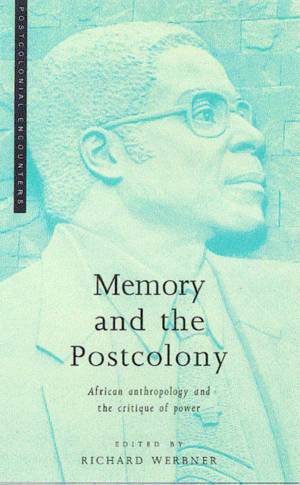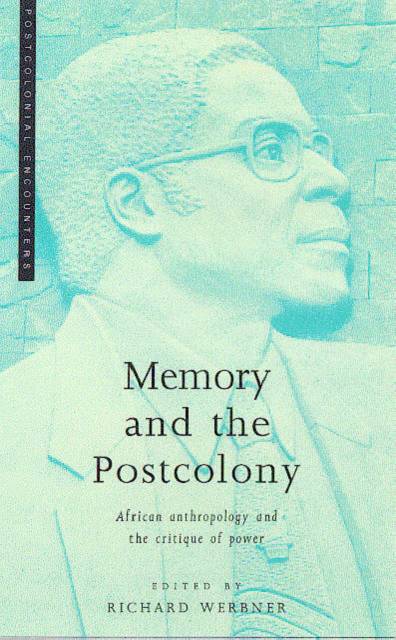
Bedankt voor het vertrouwen het afgelopen jaar! Om jou te bedanken bieden we GRATIS verzending (in België) aan op alles gedurende de hele maand januari.
- Afhalen na 1 uur in een winkel met voorraad
- In januari gratis thuislevering in België
- Ruim aanbod met 7 miljoen producten
Bedankt voor het vertrouwen het afgelopen jaar! Om jou te bedanken bieden we GRATIS verzending (in België) aan op alles gedurende de hele maand januari.
- Afhalen na 1 uur in een winkel met voorraad
- In januari gratis thuislevering in België
- Ruim aanbod met 7 miljoen producten
Zoeken
Memory and the Postcolony
African Anthropology and the Critique of Power
€ 81,45
+ 162 punten
Omschrijving
The critique of power in contemporary Africa calls for a new approach to the making of political subjectivities. Through theoretically informed anthropology, this book meets the urgent need to rethink our understanding of the moral and political force of memory, its official and unofficial forms, its moves between the personal and the social in postcolonial transformations. Memory and the Postcolony brings these transformations into perspective. It is divided into three sections in which distinguished anthropologists explore death and subjectivity; the memory work of elections and public commissions; and fundamentalism and the future. Presenting a sustained comparative analysis of memory as a politicized reality, the book will be essential reading for all scholars of postcolonial societies, as well as all those with an interest in contemporary Africa.
Specificaties
Betrokkenen
- Uitgeverij:
Inhoud
- Aantal bladzijden:
- 256
- Taal:
- Engels
- Reeks:
Eigenschappen
- Productcode (EAN):
- 9781856495929
- Verschijningsdatum:
- 1/09/1998
- Uitvoering:
- Paperback
- Formaat:
- Trade paperback (VS)
- Afmetingen:
- 134 mm x 215 mm
- Gewicht:
- 281 g

Alleen bij Standaard Boekhandel
+ 162 punten op je klantenkaart van Standaard Boekhandel
Beoordelingen
We publiceren alleen reviews die voldoen aan de voorwaarden voor reviews. Bekijk onze voorwaarden voor reviews.








